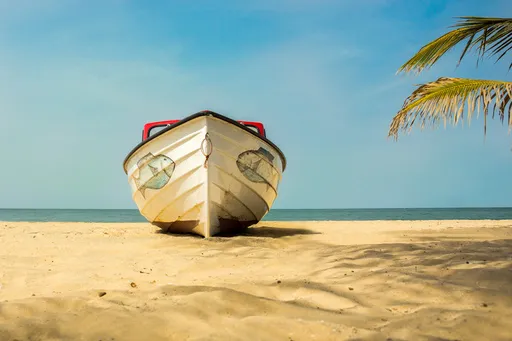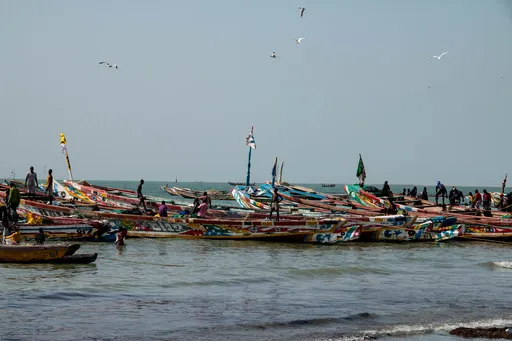

The statistics on alcohol consumption in The Gambia suggest that despite the low overall rates, there is a cultural preference or tendency towards consuming locally produced or informal types of alcoholic beverages categorized under "Other alcohols." This could include palm wine or other traditional drinks which are not clearly segregated into the standard categories of beer, wine, or spirits.
Given the significant Muslim population in The Gambia, where Islam often discourages the consumption of alcohol, it is not surprising that the overall consumption is lower than in many other countries. However, it is worth noting that cultural and religious norms can have a complex relationship with actual behavior, as the existence of a category for "other alcohols" indicates that there is still a practice of alcohol production and consumption outside of the commercial and imported drinks that are more commonly categorized and quantified.
The legal drinking age being set at 18 is a clear regulation, yet the enforcement of such laws can vary greatly depending on the country's resources, political will, and cultural attitudes toward drinking. The mention that it is not strictly followed could indicate that there often aren't rigorous checks or enforcement measures in place to ensure compliance with the legal age limit.
Overall, alcohol consumption in The Gambia, as per the data provided, shows a preference for traditional and unclassified alcoholic drinks over more global options like beer, wine, and spirits. Travelers who wish to respect local customs and laws would do well to take note of this, particularly regarding the religious aspect that influences drinking habits in the country. If individuals choose to drink while visiting, which is a personal decision, they should be mindful of local sensibilities and legal stipulations surrounding alcohol consumption.
Gambia, często określana mianem "Smiling Coast of Africa", to prawdziwy klejnot zachodniej Afryki. Charakteryzuje się wyjątkowym połączeniem bajecznych plaż, zapierających dech w piersiach krajobrazów parków narodowych i fascynującej kultury. Wyprawa w te rejony świata gwarantuje bogatą paletę doświadczeń, od obcowania z przyrodą po odkrywanie bogatej tradycji miejscowej społeczności.
As an emerging player in the global nut scene, Gambia's walnut industry has shown a budding potential, albeit small in comparison to nut-producing giants like the United States, Vietnam, and India. With projections guiding us towards a healthy growth in consumption, the walnut sector in Gambia holds a promising future, aspiring to contribute more significantly to the national economy and perhaps play an important part in the nutritional habits of the local population.
Given Gambia's growth projection, reaching 3,000 metric tons by 2026 would represent a substantial increase from the 2,000 metric tons consumed in 2021. This growth is particularly notable considering the country's previous production peak in 2018. However, to further understand Gambia's position in the industry, it is essential to not only look at consumption projections but at the interplay of production capabilities, local and international market demands, and prices.
It's noteworthy that, when putting Gambia's walnut industry into perspective, the contrast with the United States becomes stark. For instance, the USDA's forecast for California alone—a leading producer within the United States—highlights a whopping 790,000 tons expected in 2023, underscoring the vast scale difference between countries.
The absence of specific production volumes and price data for Gambia's walnut industry, based on the FAO code 0222, indicates a gap in reporting or maybe a gap in available data at this time. To empower the Gambian walnut industry and to attract potential investors or stakeholders, detailed and transparent data reporting is critical. This could include insights into the factors affecting yields, such as climate conditions, farming practices, and investment in the sector, as well as the market forces influencing price such as supply dynamics, internal and external demand pressures, and the impact of global competition.
In comparison, the global players' data availability facilitates a more in-depth analysis, which is not yet feasible for Gambia. However, this doesn't diminish the importance of the ambitious strides the country is making in this niche market. With continued growth and future potential, the Gambia walnut industry may one day hold a more notable position on the global stage.

Gambia jest fascynującym krajem z bogatą historią i kulturą, której rzeka Gambii jest centralnym punktem, przepływając przez cały kraj i stanowiąc kręgosłup zarówno dla jego ekosystemu, jak i dla ekonomii. Rzeka ta odgrywa kluczową rolę w rolnictwie, rybołówstwie i turystyce, będąc jednocześnie naturalną atrakcją dla podróżników z całego świata.
Flaga Gambii jest równie symboliczna, reprezentując różne aspekty kraju. Kolory flagi mają specjalne znaczenia:
- Czerwony reprezentuje słońce oraz pustynie na północy kraju.
- Niebieski symbolizuje samą rzekę Gambii, która jest życiodajnym elementem przyrody.
- Zielony kolor odzwierciedla ziemię i lasy, które są kluczowe dla rolnictwa i tradycyjnego życia.
- Pas biały reprezentuje pokój i jedność, które są podstawą przyszłości kraju.
Ciekawostką może być fakt, że Gambia, mimo swojej niewielkiej powierzchni i charakteru państwa-enklawy (oprócz niewielkiego fragmentu wybrzeża oceanicznego, cały kraj jest otoczony przez Senegal), ma bardzo różnorodne środowisko naturalne i jest domem dla licznych gatunków ptaków, co czyni ją popularnym miejscem dla miłośników birdwatchingu.
Gambia, mimo swoich skromnych rozmiarów, oferuje wiele atrakcji turystycznych, od wizyt w tradycyjnych wioskach i poznania lokalnej kultury, przez safari na rzece po spotkanie z dziką naturą w parkach narodowych, jak na przykład Park Narodowy Kiang West czy Rezerwat Przyrody Abuko.
Turystyka jest jednym z kluczowych sektorów gospodarki Gambii, przyciągając turystów poszukujących autentycznych doświadczeń w sercu Afryki Zachodniej. Oprócz naturalnych piękności, kraj ten kusi też pięknymi plażami wzdłuż swojego niewielkiego kawałka wybrzeża atlantyckiego, gdzie odwiedzający mogą się zrelaksować i cieszyć ciepłym klimatem.

Embarking on a holiday to The Gambia, often referred to as the ‘Smiling Coast of Africa’, can be a delightful escapade filled with cultural richness, natural splendor, and serene beach relaxation. To enhance your travel experience to this West African gem, heed these additional insights and strategies:
Cultural Respect: The Gambia is a predominantly Muslim country, and showing respect for local customs and dress codes is important. Dress modestly when away from tourist resorts and when visiting religious sites.
Malaria Precautions: The Gambia is a malaria zone, so it's crucial to take preventive measures. Consult with a travel health clinic before your departure to discuss antimalarial medication, and pack an effective insect repellent for the trip.
Local Transport: Experience the local "bush taxis" known as gele-gele for a true Gambian encounter. It's an affordable and authentic way to travel, but be prepared for a less comfortable and often crowded ride. For more predictable services, private taxis or tourist-approved transportation are advisable.
River Excursions: The River Gambia is one of the nation's greatest assets. A river cruise offers a serene mode to view wildlife, visit traditional villages and perhaps see hippos and a myriad of bird species in their natural habitat.
Handicrafts and Bargaining: While shopping for souvenirs, you'll find an array of artisans selling wood carvings, batik fabrics, and silver jewelry. Remember that bargaining is part of the culture so do engage in it with a good-natured attitude.
Guided Tours: To deeply explore and understand The Gambia, consider hiring a local guide. Not only will you learn more about the sites you visit, but you'll also be supporting the local economy.
Safety Precautions: Always keep your belongings secure and be aware of your surroundings. While The Gambia is generally safe for tourists, petty theft can occur.
Language Barrier: English is the official language, but many locals speak indigenous languages. Learning a few basic phrases in Mandinka or Wolof can enrich your interactions with the locals.
Eco-Friendly Travel: The Gambia is known for its community-run ecotourism initiatives. Staying at eco-lodges or participating in eco-friendly tours can help preserve the country's natural beauty for future visitors.
Leisure Activities: Don't miss out on the chance to relax and witness some of the most beautiful sunsets in Africa. Take time to unwind on the tranquil beaches or indulge in a rejuvenating spa treatment at your hotel.
By preparing adequately and approaching your vacation with a spirit of openness and respect, your journey to The Gambia can provide a wealth of unforgettable memories and enjoyable discoveries.
Lastly, always ensure to stay up to date with the latest health and safety guidelines by checking your home country's travel advisory for The Gambia, with special consideration to any recommendations related to COVID-19.